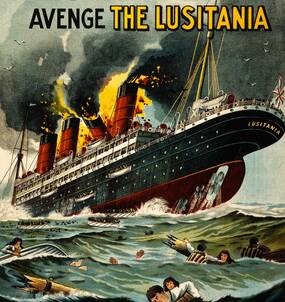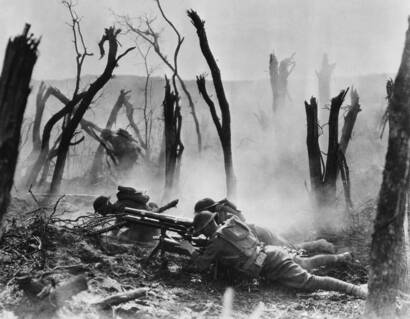America Entering World War I – A Political Context
President Woodrow Wilson (1856–1924) attempted to keep America out of World War I. But after the German Empire declared unrestricted submarine warfare in February 1917, in which U.S. civilians were killed by the sinking of Allied passenger ships, Wilson broke diplomatic relations with Germany and declared war on April 6, 1917. In his speech to the United States Congress on April 2, 1917, Wilson advocated the entry into the war in the following words: “The world must be made safe for democracy.”
In the following 1½ years, the United States delivered huge amounts of military hardware and some two million soldiers of the American Expeditionary Force (A.E.F.) to France, arriving from June 1917 onwards. Under the command of General John J. Pershing (1860–1948), the Doughboys proved combat-worthy by winning the battles of Cantigny on May 28, 1918, and St. Mihiel between September 12–15, 1918. The American forces played a decisive role during the Meuse-Argonne Offensive between September 26 and November 11, 1918. Their engagement changed the tides of war and ultimately resulted in the defeat of the German armies and the end of World War I with the signing of the armistice on November 11, 1918. According to official records, 53,402 American Soldiers were killed in combat and another 63,114 died from non-combat causes, mainly from the “Spanish flu.”




